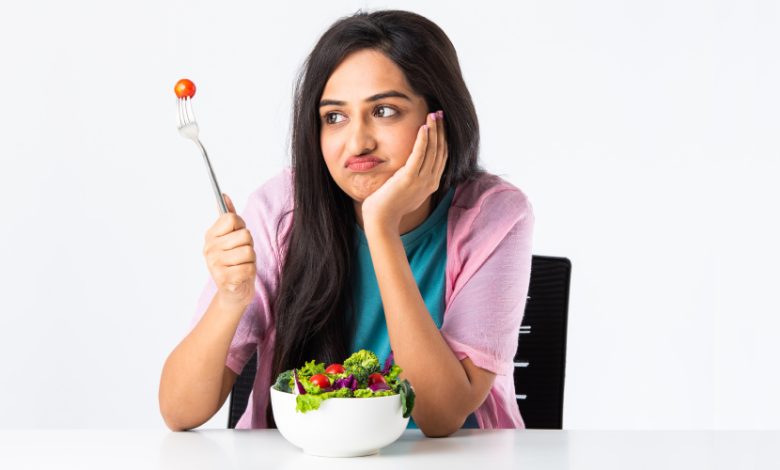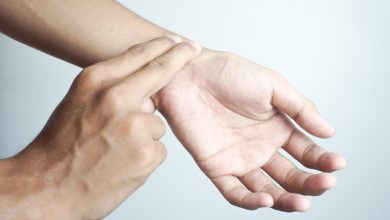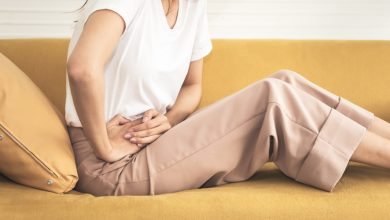Nutrition Tips for Menstruation: What to Eat and What to Avoid

Understanding Period Pain: Causes and Dietary Recommendations
Many women experience menstrual cramps (dysmenorrhea) just before or during their period. While mild discomfort is common, severe pain can interfere with daily life. Understanding the causes and making smart dietary choices can help ease symptoms.
Causes of Menstrual Cramps
1️⃣ Prostaglandin Release – These natural chemicals trigger uterine contractions, and when present in high levels, they cause painful cramps.
2️⃣ Endometriosis – A condition where uterine tissue grows outside the uterus, leading to severe pain and discomfort.
3️⃣ Adenomyosis – When the uterine lining grows into the muscular wall, it results in intense cramping.
4️⃣ Pelvic Inflammatory Disease (PID) – Infections in the female reproductive organs, often caused by STIs, can lead to painful cramps.
5️⃣ Uterine Fibroids – Noncancerous growths in the uterus can increase discomfort during menstruation.
6️⃣ Hormonal Imbalance & Birth Control – Fluctuations in hormone levels or certain contraceptives can contribute to period pain.
7️⃣ Lifestyle Factors – Lack of exercise, stress, and poor diet can also increase the likelihood of menstrual cramps.
Best Foods to Eat During Your Period
A well-balanced diet rich in vitamins and minerals can help reduce discomfort and maintain overall well-being during menstruation.
🫗 Stay Hydrated – Drink plenty of water and eat hydrating foods like watermelon, cucumber, and strawberries to reduce bloating and dehydration.
🍌 Eat Fruits – Bananas, grapes, figs, and vitamin C-rich fruits like oranges and kiwis help alleviate cramps and improve digestion.
🌾 Include Whole Grains – Foods like oats, brown rice, and quinoa provide protein, fiber, and vitamin B, helping balance hormones and reduce heavy flow.
🥛 Try Yogurt – This probiotic supports gut health, which can ease digestive issues and menstrual discomfort.
🥬 Go for Leafy Greens – Spinach, kale, and other greens are rich in magnesium and calcium, helping relieve cramps.
🥜 Snack on Nuts – Packed with healthy fats and nutrients, nuts can help reduce cramping and mood swings.
🍛 Eat Beans & Lentils – High in protein and iron, these help combat fatigue and menstrual pain.
🫚 Use Ginger – Known for its anti-inflammatory properties, ginger can be as effective as painkillers in easing cramps.
🐟 Add Fish to Your Diet – Rich in omega-3 fatty acids, iron, and protein, fish helps reduce inflammation and restore iron levels.
🌿 Include Turmeric – This spice contains curcumin, which has anti-inflammatory benefits to relieve cramps.
🧄 Try Asafoetida (Hing) – This traditional remedy can reduce clotting and ease menstrual flow.
Foods to Avoid During Your Period
Certain foods can worsen period pain and should be limited:
🥩 Red Meat – High in prostaglandins, which can increase menstrual flow and cramps.
☕ Caffeine – Can cause bloating, dehydration, and intensified cramps.
🍬 Sugar – Excessive sugar can trigger mood swings and worsen bloating.
🍷 Alcohol – Disrupts hormone levels and may lead to heavier periods.
🌶️ Spicy Foods – Can upset digestion and increase cramping.
🍟 Fried & Processed Foods – High in trans fats and sodium, these foods cause inflammation and bloating.
🍞 Refined Grains – Disrupt blood sugar levels, leading to cravings and energy crashes.
🥩 Fat-Rich Foods – Can increase inflammation and worsen cramps.
🚫 Allergens – If you have food sensitivities, avoid those foods during your period to reduce discomfort.
Tips to Reduce Period Pain Naturally
💃 Stay Active – Regular exercise helps improve circulation and reduces cramps.
💧 Hydrate – Drink plenty of water to minimize bloating and discomfort.
🍫 Choose Healthy Cravings – Opt for dark chocolate, nuts, or fruits instead of sugary snacks.
💊 Consider Supplements – Omega-3, magnesium, and vitamin B6 can help ease cramps.
🧘 Try Yoga & Heat Therapy – Gentle stretching, heating pads, or warm baths can provide relief.
💆 Massage with Essential Oils – Lavender and peppermint oils can help relax muscles.
💊 Use Pain Relievers If Needed – Over-the-counter ibuprofen or naproxen can help manage severe cramps.
When to See a Doctor
Consult a doctor if:
🔴 You experience excessively heavy bleeding.
😖 You’re over 25 and develop sudden, severe cramps.
🩸 Your bleeding pattern changes or becomes unusual.
Final Thoughts
Making small lifestyle changes and mindful dietary choices can help ease period discomfort naturally. If pain becomes severe or disrupts daily life, seeking medical advice is recommended. By understanding your body and nourishing it properly, you can make your menstrual cycle more manageable. 💖



